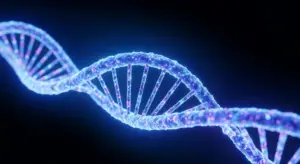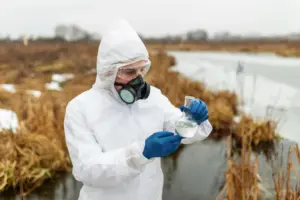Advanced prostate cancer treatment in Chennai by skilled oncologists for better outcomes.
Advanced prostate cancer treatment in Chennai by skilled oncologists for better outcomes.

Prostate cancer is one of the most common cancers affecting men, particularly those over the age of 50. The prostate is a small gland located below the bladder, responsible for producing seminal fluid. Prostate cancer occurs when abnormal cells in the prostate begin to grow uncontrollably, potentially spreading to other areas of the body. Early detection and treatment are crucial for improving survival rates, and advances in medical science have made it possible to manage prostate cancer effectively.
At VS Hospitals, a comprehensive and multidisciplinary approach is used to diagnose and treat prostate cancer, ensuring that patients receive personalized care to achieve the best possible outcomes.

Early detection and treatment are crucial for improving the chances of survival. If you notice any concerning symptoms, consult a healthcare provider immediately.
Particularly at night (nocturia), a common sign of prostate problems, including prostate cancer.
Difficulty or discomfort during urination, sometimes accompanied by a burning sensation.
Difficulty starting or stopping urination or a weak stream of urine.
The presence of blood in the urine or semen can be an alarming sign and requires immediate medical attention.
Advanced prostate cancer may cause pain in the lower back, hips, or pelvis if the cancer has spread to bones.
Difficulty achieving or maintaining an erection can be a symptom of prostate cancer.
Pain or discomfort during ejaculation can sometimes occur with prostate cancer.
Significant weight loss without a known cause may be a sign of advanced prostate cancer.
Hematuria - pink, red, or dark urine, the most common symptom
Feeling the need to urinate frequently, even when bladder is not full
Experiencing pain or burning sensation while urinating
Pain that occurs as the cancer grows and spreads
Significant weight loss not related to diet or exercise
Feeling unusually tired or weak without a clear cause
Smoking is one of the leading causes of bladder cancer. Chemicals in tobacco smoke can damage the lining of the bladder, increasing the risk.

Men are at a higher risk of developing bladder cancer than women.

Conditions such as bladder infections and long-term bladder inflammation can increase the risk.

Prolonged exposure to certain chemicals, especially those used in the dye industry, rubber production, and chemical manufacturing, increases the risk.

The risk of prostate cancer increases with age, particularly in men over the age of 50. The risk continues to rise as men age.

A family history of prostate cancer or other types of cancer may increase the risk. If a first-degree relative (father, brother) has had prostate cancer, the risk is higher.

Prostate cancer is more common in African American men and is often diagnosed at a younger age and with more aggressive forms of the disease. Asian and Hispanic men have a lower risk.

Certain inherited gene mutations, such as BRCA1 and BRCA2, can increase the risk of prostate cancer. Men with these genetic mutations may develop the disease earlier.

Diets high in saturated fats and red meat and low in fruits and vegetables may increase the risk of prostate cancer. Low levels of vitamin D are also linked to a higher risk.

Being overweight or obese can increase the risk of aggressive prostate cancer and may affect treatment outcomes.

Exposure to certain chemicals or toxins, such as those used in farming or manufacturing, may increase the risk of prostate cancer.

Diet and Nutrition
Prevention
Diagnosis
Key Services
Key Facilities
A healthy diet plays an important role in prostate cancer prevention and management. Although diet alone cannot prevent prostate cancer, certain foods can help reduce the risk and support the body during treatment. Here are some dietary tips:
Consulting with a registered dietitian specializing in oncology can help create a balanced nutrition plan that supports overall health and helps manage side effects from prostate cancer treatment.
While there is no guaranteed way to prevent prostate cancer, there are several steps you can take to reduce your risk:
While lifestyle changes cannot guarantee the prevention of prostate cancer, adopting these healthy habits can help reduce the risk and improve overall well-being.
Diagnosing prostate cancer early is essential for effective treatment. Several tests are used to detect and confirm prostate cancer:
Accurate diagnosis using these methods helps determine the stage of the cancer and guide treatment decisions.
VS Hospitals offers comprehensive services for the diagnosis, treatment, and management of prostate cancer. Key services include:
VS Hospitals is equipped with modern facilities to ensure the best care for prostate cancer patients:
Common symptoms of prostate cancer include frequent urination, painful urination, erectile dysfunction, blood in urine or semen, and pain in the lower back, hips, or pelvis. However, many cases may not show symptoms until later stages, which is why regular screening is important.
At VS Hospitals, prostate cancer is treated using surgery (prostatectomy), radiation therapy, chemotherapy, hormone therapy, and immunotherapy. A personalized treatment plan is developed based on the type, stage, and aggressiveness of the cancer.
While prostate cancer cannot be entirely prevented, adopting a healthy lifestyle by quitting smoking, maintaining a healthy weight, exercising regularly, and eating a balanced diet can help reduce the risk of developing prostate cancer. Regular screenings for high-risk individuals are also crucial for early detection.